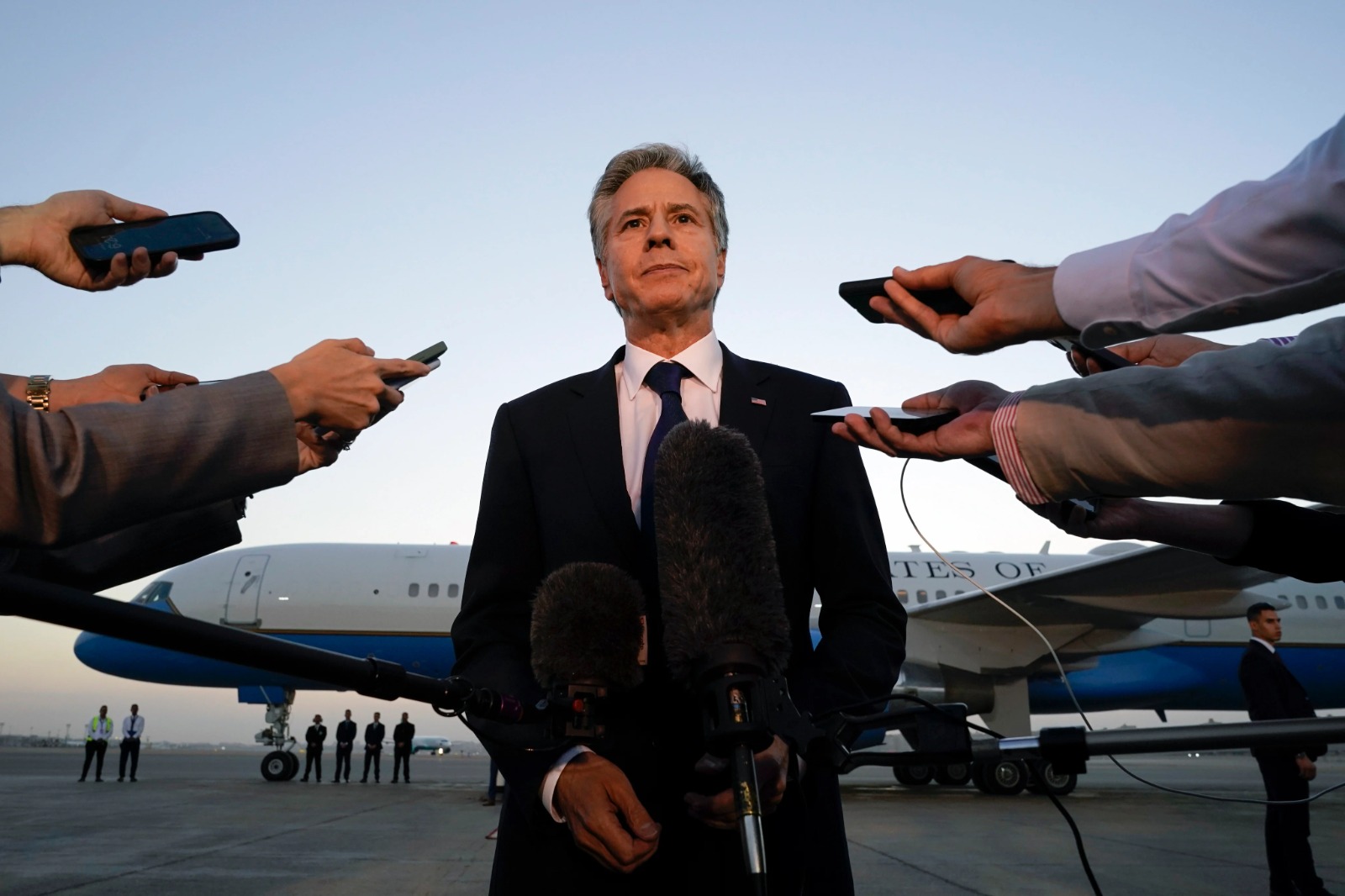Diplomatic efforts are in high gear as US Secretary of State Antony Blinken extends his Middle East shuttle diplomacy. Blinken’s journey takes him from Riyadh, where he held a productive meeting with Crown Prince Mohammed bin Salman, to Cairo, where he discussed the situation with Egyptian President Abdel Fattah Al Sisi. The diplomatic push comes in response to the worsening humanitarian conditions in Gaza, prompting calls for a ceasefire and international intervention.
Blinken’s Productive Meeting with Crown Prince Mohammed bin Salman
heading 1: US Secretary of State Antony Blinken’s diplomatic mission took him to Riyadh, Saudi Arabia, where he engaged in a dawn closed-door meeting with Crown Prince Mohammed bin Salman, widely known as MBS. Blinken described the meeting as “very productive,” emphasizing the significance of their discussions.
Crown Prince Mohammed bin Salman conveyed Saudi Arabia’s commitment to de-escalating the crisis by saying the kingdom is reaching out “to calm the situation.” This outreach even involved a call to Iranian President Ebrahim Raisi, indicating an extensive diplomatic effort to broker peace in the region.
The senior State Department official also mentioned Prince Mohammed’s condemnation of attacks on civilians and reiterated the importance of Palestinians obtaining their legitimate rights and achieving a just and lasting peace. This collaborative approach showcases the regional commitment to resolving the ongoing crisis.
Diplomatic Engagement with President Abdel Fattah Al Sisi in Cairo
After his meeting in Riyadh, Blinken flew to Cairo, Egypt, continuing his diplomatic tour through the Middle East. In Egypt, Blinken engaged in a substantial conversation with Egyptian President Abdel Fattah Al Sisi, whose administration has played a pivotal role in brokering truces between Hamas and Israel in the past.
President Sisi, during his meeting with Blinken, voiced concerns about Israel’s response in Gaza, characterizing it as “collective punishment” that goes beyond the right to self-defense. The United Nations had previously warned about the deteriorating humanitarian conditions in Gaza, further highlighting the urgency of the situation.
Substantiating President Sisi’s stance, China’s Foreign Minister Wang Yi conveyed a firm message to his Saudi counterpart, Prince Faisal bin Farhan, on Saturday. Wang unequivocally stated that Israel’s actions had exceeded the scope of self-defense and called for Israel to heed the international community’s calls to cease collective punishment in Gaza. This marked a significant stance from China on the ongoing conflict.
Regional Concerns and Calls for Peace
As the conflict intensifies, Iran has issued a stern warning to Israel. Iran’s Foreign Minister, Hossein Amirabdollahian, cautioned Israel against continuing its aggression towards Palestinians. He stated that regional actors were prepared to act in response to the ongoing violence. This warning underscores the volatility of the situation and the potential for further escalation in the region.
Moreover, President Ebrahim Raisi of Iran reached out to French President Emmanuel Macron, urging France to help prevent the oppression of Palestinians. International leaders are expressing deep concerns about the impact of the crisis on civilians, particularly those in Gaza, as well as the potential for regional escalation.
In response to the dire humanitarian situation in Gaza, the leaders of the European Union’s member states have reiterated the importance of providing urgent humanitarian aid to the region. They emphasized the necessity of preventing further regional escalation. The EU leaders remain committed to the two-state solution and the reinvigoration of the Middle East Peace Process.
Pope Francis has also weighed in on the matter, calling for the establishment of humanitarian corridors to aid those under siege in Gaza. He made a heartfelt plea for the protection of civilians, including children, the sick, the elderly, and women, and appealed for the release of prisoners held by Hamas.
In this volatile and complex crisis, diplomacy is playing a crucial role in attempting to quell the violence, protect civilians, and find a path towards peace in the region. The international community remains on alert, striving for a resolution that ensures the safety and well-being of all those affected by the conflict.
















